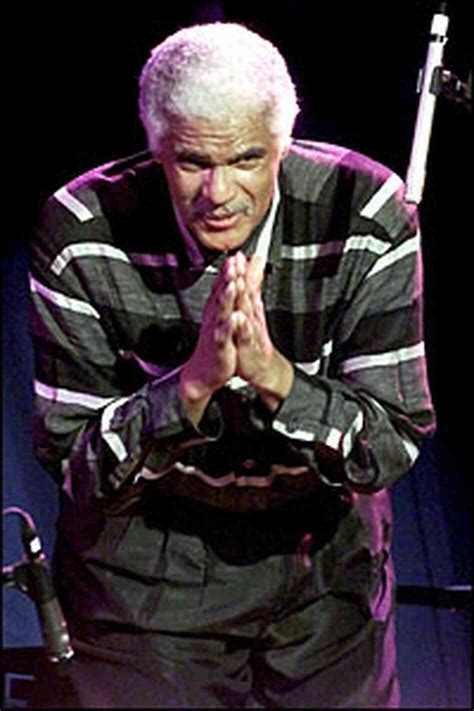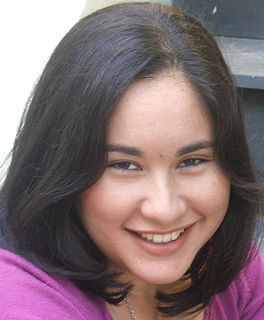A Quote by Sam Abell
In the last workshop I taught, a woman flew in from Thailand. She's a medical doctor in Bangkok. I asked her in her one-on-one session where she wanted photography to be in her life.Did she want a second career? Was it about earning money? Or was it art? And she said "None of those. I want photography to be serious in my life." It would be like someone wanting music, like piano playing, to be a richer, deeper, and maybe even harder experience.
Quote Topics
About
Art
Asked
Bangkok
Career
Deeper
Did
Doctor
Earning
Earning Money
Even
Experience
Flew
Harder
Her
Last
Life
Like
Maybe
Medical
Medical Doctor
Money
Music
My Life
None
Photography
Piano
Piano Playing
Playing
Richer
Said
Second
Serious
Session
She
Someone
Taught
Thailand
Those
Want
Wanted
Wanting
Woman
Workshop
Would
Would Be
Related Quotes
She [Joni Mitchell] wanted to have that (jazz) element in her music. Of course, when she heard Jaco's [Jaco Pastorius'] music and met him, that floored her -- really grabbed her. She decided that Wayne Shorter was really conducive to her music. She would speak metaphorically about things. "I want this to sound like a taxicab driver, or a taxi in New York," or "I want this to sound like a telephone ringing." She would speak to musicians like that, and we really tuned into what she would want our music to be.
But what I kept wondering about is this: that first second when she felt her skirt burning, what did she think? Before she knew it was candles, did she think she'd done it herself? With the amazing turns of her hips, and the warmth of the music inside her, did she believe, for even one glorious second, that her passion had arrived?
I'll just be your brother from now on." he said, looking at her with a hopeful expectation that she would be pleased, which made her want to scream that he was smashing her heart into pieces and he had to stop. "That's what you wanted, isn't it?" It took her a long time to answer, and when she did, her own voice sounded like an echo, coming from very far away. "Yes," she said, and she heard the rush of waves in her ears and her eyes stung as if from sand or salt spray. "That's what I wanted.
She was beautiful, but not like those girls in the magazines. She was beautiful, for the way she thought. She was beautiful, for the sparkle in her eyes when she talked about something she loved. She was beautiful, for her ability to make other people smile, even if she was sad. No, she wasn't beautiful for something as temporary as her looks. She was beautiful, deep down to her soul. She is beautiful.
Tessa had begun to tremble. This is what she had always wanted someone to say. What she had always, in the darkest corner of her heart, wanted Will to say. Will, the boy who loved the same books she did, the same poetry she did, who made her laugh even when she was furious. And here he was standing in front of her, telling her he loved the words of her heart, the shape of her soul. Telling her something she had never imagined anyone would ever tell her. Telling her something she would never be told again, not in this way. And not by him. And it did not matter. "It's too late", she said.
A woman recently told me a story about her descent into chronic fatigue. She was sleeping sixteen, eighteen hours a day, and feeling more tired when she woke up than when she went to bed. She really wanted to go to a workshop and she went anyway. And when she was there, she felt much less tired. So she decided, "Maybe if I continue to follow what I really want to do at all times, I will feel less tired." This was her spiritual practice - - to only do the things that she wanted to, and to not make choices based on anything else. That is an embracing of pleasure, of joy, of good feelings.
She didn’t understand why it was happening,” he said. “I had to tell her she would die. Her social worker said I had to tell her. I had to tell her she would die, so I told her she was going to heaven. She asked if I would be there, and I said that I would not, not yet. But eventually, she said, and I promised that yes, of course, very soon. And I told her that in the meantime we had great family up there that would take care of her. And she asked me when I would be there, and I told her soon. Twenty-two years ago.
She didn't feel thirty. But then again again, what was being thirty supposed to feel like? When she was younger, thirty seemed so far away, she thought that a woman of that age would be so wise and knowledgeable, so settled in her life with a husband and children and a career. She had none of those things. She still felt as clueless as she had felt when she was twenty, only with a few more gray hairs and crow's feet around her eyes.
The doctor's wife wasn't a bad woman. She was sufficiently convinced of her own importance to believe that God actually did watch everything she did and listen to everything she said, and she was too taken up with rooting out the pride she was prone to feeling in her own holiness to notice any other failings she might have had. She was a do-gooder, which means that all the ill she did, she did without realizing it.
I wondered about Mrs. Winterbottom and what she meant about living a tiny life. If she didn't like all that baking and cleaning and jumping up to get bottles of nail polish remover and sewing hems, why did she do it? Why didn't she tell them to do some of the things themselves? Maybe she was afraid there would be nothing left for her to do. There would be no need for her and she would become invisible and no one would notice.
She stared at herself in the mirror. Her eyes were dark, almost black, filled with pain. She'd let someone do that to her. She'd known all along she felt things too deeply. She became attached. She didn't want a lover who could walk away from her, because she could never do that - love someone completely and survive intact if her left her.
Franny has the measles, for one thing. Incidentally, did you hear her last week? She went on at beautiful length about how she used to fly all around the apartment when she was four and no one was home. The new announcer is worse than Grant - if possible, even worse than Sullivan in the old days. He said she surely dreamt that she was able to fly. The baby stood her ground like an angel. She said she knew she was able to fly because when she came down she always had dust on her fingers from touching the light bulbs.
I was amazed by this person who, even though she had everything, would go to feed the homeless and visit sick children and Aids victims. It was like a fairy tale. Who was she really? Why did she do this? She was trying to find love. I wanted the world to see her kindness, her humility: I think she realised that would be her way.
It was not the passion that was new to her, it was the yearning adoration. She knew she had always feared it, for it left her helpless; she feared it still, lest if se adored him too much, then she would lose herself, become effaced, and she did not want to be effaced, a slave, like a savage woman. She must not become a slave. She feared her adoration, yet she would not at once fight against it.
Elizabeth’s hands flew to her mouth; tears filled her eyes with happiness as she realized he was fulfilling yet another of her and her mother’s intended activities. “Why are you fulfilling all of my mother’s dreams?” she asked, studying his face and searching for answers. “So you don’t run away like she did in search of them,” he replied, taking her hand. “Come on, join in!” he said, leaping around.


































